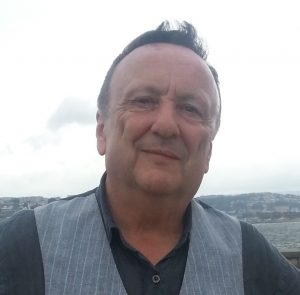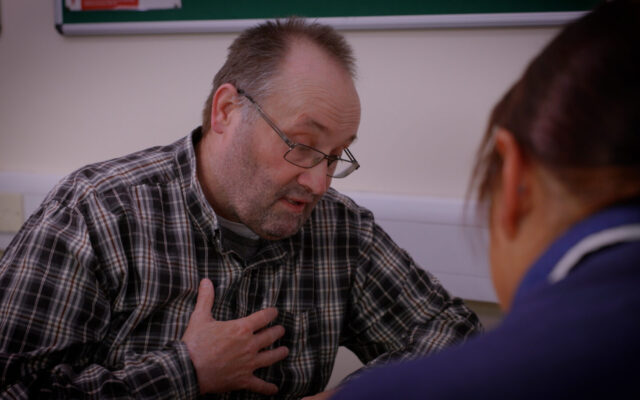I recently attended a talk by the excellent Joe Plomin, the producer of the Winterbourne View Panorama programme. He listed more than twenty regulatory bodies that had a statutory duty to protect the residents of the institution. Every single one of them failed to detect anything. In the end it was a television documentary team, none of them ‘experts’ in learning disability, healthcare, or protection, who exposed what was going on. Plomin’s real anger about the whole thing, he told us, was that he had to make the programme at all. He predicted, sadly but confidently, that the next such exposure would surely not be far away. On cue, along came Dispatches.
Channel 4’s programme ‘Under lock and key’ showed the British public another miserable catalogue of personal tragedies arising from the ‘care’ of people with learning disabilities. This time it was at St Andrews in Northampton, part of St Andrews Healthcare, a long-standing charity ‘providing NHS Healthcare’ in the field of mental health and learning disability. (1) St Andrews issued a statement refuting the allegations as inaccurate, misleading or taken out of context, but said that because of their duty to uphold the confidentiality of their patients they could elaborate no further. (2) There were calls for an enquiry.
Harrowing and disturbing as they are, I do not intend to recount the individual stories here – these have been more than adequately covered elsewhere. (3, 4, 5) Let us instead step back and take a wider look at the whole picture. This is not the first time, by any means, that we have been here. It is just six years since Panorama filmed undercover at Winterbourne View, a privately operated assessment and treatment centre for people with learning disabilities, and revealed horrific practices of torture and abuse. (6) Six staff were jailed and five given suspended sentences and a report, accepted by the government, recommended that the 3,000 plus learning disabled or mentally ill patients kept in ‘assessment and treatment’ units would be supported back into their communities or at least to smaller units nearer their homes. This commitment remains far from being met, and many still live in places such as St Andrews.
But Winterbourne View was not the first scandalous exposure of shocking institutional ill-treatment of people with learning disabilities. In the last half century there have been scandals at Ely Hospital in Cardiff (1967), St Lawrence and Borocourt hospitals (1981), the Cornwall Partnership NHS Trust (2005), Sutton and Merton Primary Care Trust (2005) and, most recently, at Southern Health Foundation Trust (2015 and ongoing). This is by no means a comprehensive list.
One of the startling things about each of these events is that they are almost never uncovered by the regulatory bodies employed, at state expense, to stop such things happening. Ely was exposed by the News of The World, St Lawrence and Borocourt by an ITV documentary, Silent Minority, Cornwall by the East Cornwall Mencap Society, Southern Healthcare by families, Winterbourne by Panorama, and St Andrews by Dispatches. The only exception was Merton and Sutton, where a new chief executive, untainted by association, demanded an investigation.
A characteristic of each of these events is that an enquiry is initiated, a report published, ‘lessons are learned’, action plans are implemented and then, after a short period, another scandal erupts. As Saskia Baron, a regular contributor to Community Living, has put it, ‘every time, they make headlines, and promises are made to reform the system.’ (3) The abuse, however, goes on.
Note that there is no pattern to the provider of the abuse. Abuse can happen, free at the point of delivery, on the NHS, just as much as it can occur in the private sector. It can come from the not-for-profit sector just as easily as from the state or the free market. The common factor in this disparate series of abusive events is that all the people who populate the institutions have learning disabilities.
What does all of this tell us? Here are two thoughts.
First, at the heart of all of these scandals is the medical profession. They run the hospitals and the trusts, they design and provide the ‘care’ and ‘treatment’ at St Andrews and Winterbourne, they commission the services, they section people into them. Why are people with learning disabilities the objects of medical treatment, simply because they have learning disabilities? They become powerless in the world of medical authority, sectioned, prescribed psychotropic drugs, sometimes spending decades or even their whole lives in secure accommodation at the whim of psychiatrists. And often these medicalised environments, where they should be safe and cared for, are deeply abusive. Who decided that learning disability is a disease that needs medical treatment?
Second, the problem, even in the age of ‘care in the community’, is still too often seen as simply being the wrong sort of institution. Or the wrong type of carer working in the institution. Because the institution, still, is seen as a necessary thing. Because these people are service users, people born not to work and live in families and have social lives in their communities but to be creatures of the institution. If only we could tweak the institution, or improve the staff, or regulate better, then these service users will be using better services, and all will be well. Let’s pause and consider that. Has the institution ever worked for people with learning disabilities? I suggest that it never has, and it never will. The institution and the abuse of people with learning disabilities will always go hand in hand.
If all this – the casual abuse, the lifelong detention, the early deaths, the deprivation of rights and liberties – was happening to any other group in society, thousands would be demonstrating in Trafalgar Square. Yet they don’t. Because this is seen not as a matter of human rights, but as a matter of institutional failure, for those who are born to be users of services, the institutional fodder of a society in which the rest of us can live freely. No enquiry will root out this problem, unless it begins by acknowledging these truths – like the rest of us, people with learning disabilities do not need medical care unless they are ill, and they are not born to live in institutions.
- St Andrews Healthcare website http://www.standrewshealthcare.co.uk/who-we-are
- Statement by St Andrews Healthcare 2 March 2017 http://www.standrewshealthcare.co.uk/who-we-are
- Saskia Baron, The Arts Desk http://www.theartsdesk.com/tv/dispatches-under-lock-and-key-channel-4
- The Sun, https://www.thesun.co.uk/living/2976494/restrained-isolated-and-soiled-with-excrement-inside-the-home-where-children-with-learning-difficulties-are-locked-up-for-years/
- The Huffington Post http://www.huffingtonpost.co.uk/entry/dispatches-channel-4-investigation-finds-shocking-treatment-of-child-mental-health-patients_uk_58b6d894e4b0a8a9b787c89d
- BBC Website http://www.bbc.co.uk/programmes/b01nqn4d





